第5章
The enemy had one killed, and two wounded. We took from them three horses, and all their baggage; and being informed, by two of our number that went to their town, that the Indians had entirely evacuated it, we proceeded no further, and returned with all possible expedition to assist our garrison against the other party.
We passed by them on the sixth day, and on the seventh, we arrived safe at Boonsborough.
On the eighth, the Indian army arrived, being four hundred and forty-four in number, commanded by Capt. Duquesne, eleven other Frenchmen, and some of their own chiefs, and marched up within view of our fort, with British and French colours flying; and having sent a summons to me, in his Britannick Majesty's name, to surrender the fort, I requested two days consideration, which was granted.
It was now a critical period with us.--We were a small number in the garrison.--A powerful army before our walls, whose appearance proclaimed inevitable death, fearfully painted, and marking their footsteps with desolation. Death was preferable to captivity; and if taken by storm, we must inevitably be devoted to destruction. In this situation we concluded to maintain our garrison, if possible.
We immediately proceeded to collect what we could of our horses, and other cattle, and bring them through the posterns into the fort: And in the evening of the ninth, I returned answer, that we were determined to defend our fort while a man was living--Now, said I to their commander, who stood attentively hearing my sentiments, We laugh at all your formidable preparations: But thank you for giving us notice and time to provide for our defence. Your efforts will not prevail; for our gates shall for ever deny you admittance.--Whether this answer affected their courage, or not, Icannot tell; but, contrary to our expectations, they formed a scheme to deceive us, declaring it was their orders, from Governor Hamilton, to take us captives, and not to destroy us; but if nine of us would come out, and treat with them, they would immediatly withdraw their forces from our walls, and return home peaceably.
This sounded grateful in our ears; and we agreed to the proposal.
We held the treaty within sixty yards of the garrison, on purpose to divert them from a breach of honour, as we could not avoid suspicions of the savages. In this situation the articles were formally agreed to, and signed; and the Indians told us it was customary with them, on such occasions, for two Indians to shake hands with every white-man in the treaty, as an evidence of entire friendship. We agreed to this also, but were soon convinced their policy was to take us prisoners.--They immediately grappled us;but, although surrounded by hundreds of savages, we extricated ourselves from them, and escaped all safe into the garrison, except one that was wounded, through a heavy fire from their army. They immediately attacked us on every side, and a constant heavy fire ensued between us day and night for the space of nine days.
In this time the enemy began to undermine our fort, which was situated sixty yards from Kentucke river. They began at the water-mark and proceeded in the bank some distance, which we understood by their making the water muddy with the clay; and we immediately proceeded to disappoint their design, by cutting a trench across their subterranean passage. The enemy discovering our counter-mine, by the clay we threw out of the fort, desisted from that stratagem:
And experience now fully convincing them that neither their power nor policy could effect their purpose, on the twentieth day of August they raised the siege, and departed.
During this dreadful siege, which threatened death in every form, we had two men killed, and four wounded, besides a number of cattle. We killed of the enemy thirty-seven, and wounded a great number. After they were gone, we picked up one hundred and twenty-five pounds weight of bullets, besides what stuck in the logs of our fort; which certainly is a great proof of their industry. Soon after this, I went into the settlement, and nothing worthy of a place in this account passed in my affairs for some time.
During my absence from Kentucke, Col. Bowman carried on an expedition against the Shawanese, at Old Chelicothe, with one hundred and sixty men, in July, 1779. Here they arrived undiscovered, and a battle ensued, which lasted until ten o'clock, A. M. when Col. Bowman, finding he could not succeed at this time, retreated about thirty miles. The Indians, in the meantime, collecting all their forces, pursued and overtook him, when a smart fight continued near two hours, not to the advantage of Col.
Bowman's party.
Col. Harrod proposed to mount a number of horse, and furiously to rush upon the savages, who at this time fought with remarkable fury. This desperate step had a happy effect, broke their line of battle, and the savages fled on all sides. In these two battles we had nine killed, and one wounded. The enemy's loss uncertain, only two scalps being taken.
On the twenty-second day of June, 1780, a large party of Indians and Canadians, about six hundred in number, commanded by Col. Bird, attacked Riddle's and Martin's stations, at the Forks of Licking River, with six pieces of artillery. They carried this expedition so secretly, that the unwary inhabitants did not discover them, until they fired upon the forts; and, not being prepared to oppose them, were obliged to surrender themselves miserable captives to barbarous savages, who immediately after tomahawked one man and two women, and loaded all the others with heavy baggage, forcing them along toward their towns, able or unable to march. Such as were weak and faint by the way, they tomahawked. The tender women, and helpless children, fell victims to their cruelty. This, and the savage treatment they received afterwards, is shocking to humanity, and too barbarous to relate.